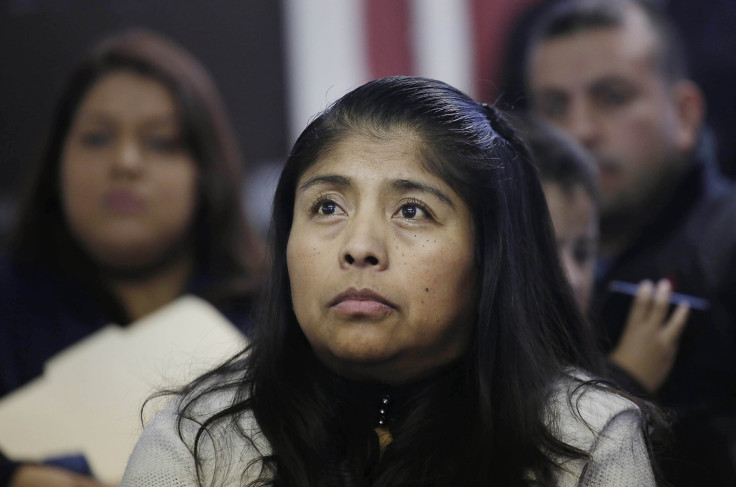How Does Legal Immigration Work? Facts About New Trump Policies And Why Undocumented Immigrants Can't Just Get In Line

President Donald Trump is keeping his campaign promise to deport millions of undocumented immigrants. The Department of Homeland Security (DHS) unveiled Tuesday two memos detailing how the new administration plans to aggressively detain and deport undocumented immigrants and restrict legal immigration by rejecting asylum claims by migrants.
Anyone charged with or even suspected of committing a crime could be deported under Trump's new policies. “The surge of immigration at the southern border has overwhelmed federal agencies and resources and has created a significant national security vulnerability to the United States,” the DHS secretary, John Kelly, said in the guidelines.
But critics argue the measures ignore why people come to the United States without visas in the first place. And that's because the way legal immigration works now makes it so hard for most immigrants to obtain authorization. Below are six facts that explain why undocumented immigrants can't just go to the back of the line as anti-illegal immigration proponents insist.
1. Getting a visa depends on the type of visa an immigrant can qualify for, the applicant’s country of origin, the size of the existing backlog and other factors.
2. There are roughly 4 million immigrants waiting for a visa at any time, meaning it can take 19 years to get a visa.
3. While 4 million immigrants is a lot of people, most immigrants don't qualify for a visa, which are generally awarded for reasons having to do with employment, family reunification or humanitarian protection.
4. Immigrants battling extreme poverty at home do not qualify as a refugee or an asylee.
5. There are limited number of visas granted each year. For example, there are only 65,000 H1B visas awarded each year to high-skilled workers.
6. Immigrants from small nations are luckier than people from, say, Mexico or China. A diversity visa lottery sets aside 40,000 green cards each year to people in countries without large immigrant populations in the United States.
© Copyright IBTimes 2025. All rights reserved.






















